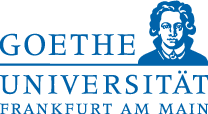- Back
- Location
- Frankfurt am Main
Hessen, Germany - Date Posted
- 5 Dec 2025

- Type
- PhD Project
- Frankfurt am Main
Hessen, Germany - 5 Dec 2025
PhD Student cum Research Associate

NOTE: this position listing has expired and may no longer be relevant!
Position Description
Fully funded PhD Student cum Research Associate Position in Anthropology from
2015 to 2018 at Goethe-University, Germany
The research project “Political Organization beyond the State in Aceh, Indonesia, and Mindanao, Philippines” under the aegis of the Collaborative Research Center “Weakness Discourses and Resource Regimes” (Sonderforschungsbereich: “Schwächediskurse und Ressourcenregime”) at Goethe-University Frankfurt am Main, Germany, offers a fully funded four-year doctoral research position in the field of anthropology. The position will be filled as soon as possible with a starting date no later than April 1, 2015.
ELIGIBILITY
To be eligible for the position the candidate must hold a Master’s degree in social and/or cultural anthropology with a minimum of 120 ECTS credit points at the Master’s level, or international equivalent. Upon application a minimum of 15 ECTS credit points, or international equivalent, should have been acquired at the advanced level conducting early dissertation and/or other empirical project work. In addition to these requirements, applicants are expected to have good spoken and written command of English, Tagalog and one of the vernacular languages of Mindanao, Philippines (e.g. Maguindanao or Maranao). The candidate is expected to be willing to reside in Frankfurt am Main, Germany and learn the German language during the term of employment. The PhD project must be fully completed by December 31, 2018. Project fieldwork will consist of 12 to 18 months in the field in Mindanao (Philippines) and Aceh (Indonesia).
FUNDING NOTE
The position is fully funded with a gross annual salary of 38.,220 Euro. Cost of travel and travel allowances for field research and conference visits will be fully covered by the project budget.
PHD SUPERVISION AND PROJECT TEAM
The PhD project will be supervised by Dr. Susanne Schröter, Professor of Anthropology of Colonial and Post-colonial Orders. The successful applicant will work together in tandem with a post-doctoral researcher and local research assistants in the Philippines and Indonesia during fieldwork.
PROJECT DESCRIPTION
Summary and Research Questions
The terms “weak state” and “failing state” refer to an alarming situation in international politics that is associated with arbitrariness and terror and that, especially since 9/11, has come to be regarded as a threat to the international community. For this reason, state-building has become an important part of international development work; and Western countries, the UN and other international organizations try to influence local actors in post-colonial countries, either through financial rewards or military sanctions, and to commit them to the building of a democratic state.
Yet, so far these endeavors have met with little success. In many countries development efforts are undermined, democratization processes run aground, and western organizational models are culturally transformed. Most difficult to implement is the state’s monopoly on the use of force. Non-state, ethnic and religious elites retain their political power, new parastatal actors emerge, and state representatives are involved in shadow economies and non-sate political associations. Worldwide such structures are becoming more common. Despite the apparent failure of attempts to build bureaucratic, democratic states along western lines, no one has yet asked why local populations cling so tightly to anti-state structures, or, rather, what makes these so attractive.
In this project, we aim to approach this question from a perspective that casts aside neo-evolutionary models of political development. Instead, we will examine how indigenous models of political organization function in specific contexts and how they develop under the influence of international development efforts.
In keeping with the approach of the Collaborative Research Center “Weakness Discourses and Resource Regimes”, the project will focus on the one hand on the outlining of academic discourses on comparative politics and competing orders that exist “in situ”/on site, and, on the other hand, on drawing attention to competing modi of resource allocation between state and non-state orders. The latter perspective in particular, with its relatively broad conception of the term “resource”, promises to provide important insights highly relevant to recent research as well as, by virtue of the comparative perspective taken, make important theoretical contributions.


